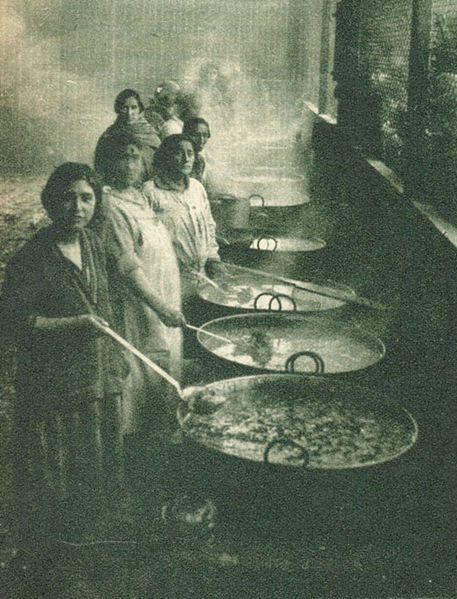A soup kitchen, food kitchen, or meal center is a place where food is offered to the hungry usually for free or sometimes at a below-market price. Frequently located in lower-income neighborhoods, soup kitchens are often staffed by volunteer organizations, such as church or community groups. Soup kitchens sometimes obtain food from a food bank for free or at a low price, because they are considered a charity, which makes it easier for them to feed the many people who require their services.
A soup kitchen in Montreal, Quebec, Canada, in 1931
Count Rumford, painted by Thomas Gainsborough, 1783
Unemployed men outside a soup kitchen opened by Al Capone in Depression-era Chicago, Illinois, the US, 1931
Chilean women preparing soup kitchen meals in 1932
In politics, humanitarian aid, and the social sciences, hunger is defined as a condition in which a person does not have the physical or financial capability to eat sufficient food to meet basic nutritional needs for a sustained period. In the field of hunger relief, the term hunger is used in a sense that goes beyond the common desire for food that all humans experience, also known as an appetite. The most extreme form of hunger, when malnutrition is widespread, and when people have started dying of starvation through lack of access to sufficient, nutritious food, leads to a declaration of famine.
Martin Luther King Jr. (center), one of many 20th century political figures who considered it important to fight hunger: "When I die, don't build a monument to me. Don't bestow me degrees from great universities. Just clothe the naked. Say that I tried to house the homeless. Let people say that I tried to feed the hungry." [according to whom?]
The Hunger March sculptures in Copenhagen
Unemployed men outside a soup kitchen in Chicago, 1931
A poster made by the United States Food Administration around the years 1914-1917 urging Americans to ration







